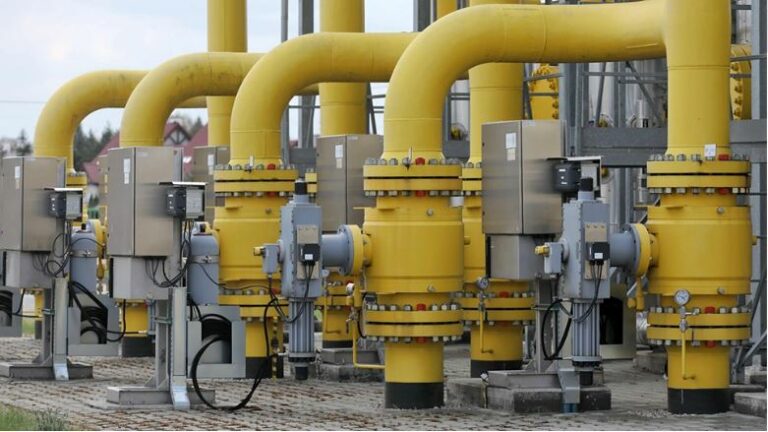The biggest single pipeline carrying Russian gas to Germany starts annual maintenance on Monday, with flows expected to stop for ten days, but governments, markets, and companies are worried the shut-down might be extended due to the war in Ukraine.
The Nord Stream 1 pipeline transports 55 billion cubic metres (bcm) a year of gas from Russia to Germany under the Baltic Sea. It will undergo maintenance from July 11 to 21.
Last month, Russia cut flows to 40% of the pipeline’s total capacity, citing the delayed return of equipment being serviced by Germany’s Siemens Energy (ENR1n.DE), in Canada.
Europe fears Russia may extend the scheduled maintenance to restrict European gas supply further, throwing plans to fill storage for winter into disarray and heightening a gas crisis that has prompted emergency measures from governments and painfully high bills for consumers.
German economy minister Robert Habeck has said the country should confront the possibility that Russia will suspend gas flows through Nord Stream 1 beyond the scheduled maintenance period.
“Based on the pattern we’ve seen, it would not be very surprising now if some small, technical detail is found and then they could say ‘now we can’t turn it on anymore’,” he said at an event at the end of June.
Kremlin spokesperson Dmitry Peskov dismissed claims that Russia was using oil and gas to exert political pressure, saying the maintenance shutdown was a regular, scheduled event, and that no one was “inventing” any repairs.
There are other big pipelines from Russia to Europe but flows have been gradually declining, especially after Ukraine halted one gas transit route in May, blaming interference by occupying Russian forces.
Russia has cut off gas supplies completely to several European countries that did not comply with its demand for payment in roubles.
Greece, despite the fact that it has the least dependence on Russian than other states, which the political leadership of the Ministry of Foreign Affairs has often emphasised in recent days, continues to import approximately 40% of Russian gas.
The managing director of PPC, Mr. Giorgos Stassis, from The Economist’s platform, predicted that in the event of a violent interruption of Russian gas, there would be a great upheaval in the market, which for Greece, which has already taken its measures, would lead to a cut of energy from industry to cover domestic consumers. What does this mean? What if natural gas is indeed unable to cover domestic demand, then loads from industry will be reduced so that critical infrastructures and households are not left without electricity.
August subsidies headache
Since state-owned Gazprom cut gas flows to Germany by 60% in mid-June, prices have begun a new rampant run. This race leads to the paralysis of European energy giants such as Germany’s Uniper and France’s EDF, which is nationalised and undermines any price reduction policy for households and businesses.
The explosive cocktail of price increases continues today as the price of electricity in the wholesale market jumped by 54.77% compared to yesterday and reached 374.85 euros/MWh. Natural gas covers 44.5% of the energy mix, RES 25.1%, lignite less than 10%, imports 8%, and hydro almost 6%.
The increased energy costs derailed the state budgets, which are called to moderate the price rally but also the Greek subsidy programme which has foreseen 3.2 billion euros until the end of the year. If the frantic price run continues, then this money could evaporate within a two-quarter month as of the 722 million that will be allocated for July, for the next month, it is estimated that between 1 and 1.5 billion will be needed to support households and businesses and to cover the energy costs at 85%, as announced by Mr. Skrekas.
In this case, the options are very limited. Either additional government support and greater fiscal leeway are sought, or the burdens citizens will be asked to pay will be greater, making it more difficult for the government to keep electricity bills manageable.
For all these reasons, energy costs combined with efficiency issues are very high in government planning and seem to be influencing the overall political climate and election debates.
Ask me anything
Explore related questions





